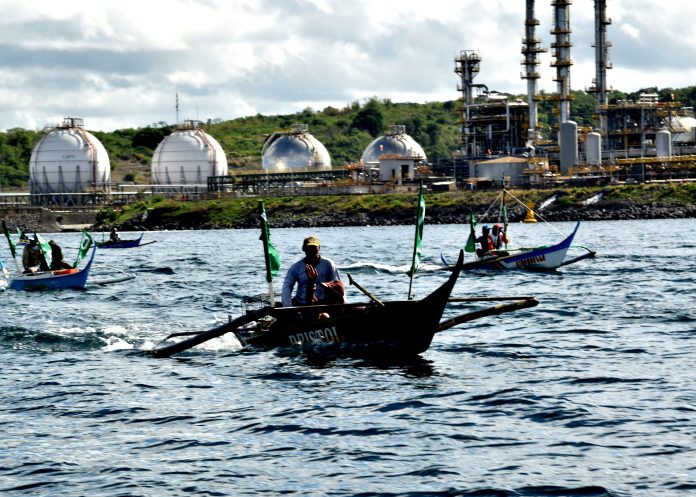Environmental activists and residents held a demonstration off the coast of the province of Batangas on April 22, Earth Day, to protest plans to develop new fossil gas and liquefied natural gas (LNG) facilities near the ecologically sensitive marine corridor known as the Verde Island Passage (VIP).
Located in the south of Luzon and at the heart of the thriving marine region known as the Coral Triangle, VIP encompasses five provinces and hosts 60 percent of the world’s known shore fish species, over 300 coral species, and thousands of other types of sea creatures.
The area has been recognized by marine scientists as the most biodiverse marine habitat in the world.
“Today’s protest is a celebration of the rich biodiversity in the Verde Island Passage, yet also a lament for the certain destruction it would suffer should fossil gas and LNG projects in Batangas push through,” said Catholic priest Edwin Gariguez, lead convenor of the Protect VIP campaign network.
Fossil gas, commonly referred to as natural gas and LNG in its liquid form, is a fossil fuel touted as a clean alternative to coal. The VIP area is the epicenter of fossil gas and LNG developments in the country. At least eight of 27 proposed new plants and seven of the nine planned LNG terminals are located in the area.
Environmental activists said the development of the projects will be “at the cost of the richness of the VIP and all livelihood dependent on it.”
“Fossil gas and LNG operations will create great disturbance in marine ecosystems, cause thermal pollution, and emit greenhouse gas emissions that trigger worse climate change,” said Gerry Arances of the Center for Energy, Ecology, and Development.
“Companies and financial backers behind these projects should know they are doing the people of Batangas and the Philippines no favor,” said Arances, who is also co-convenor of Protect VIP.









